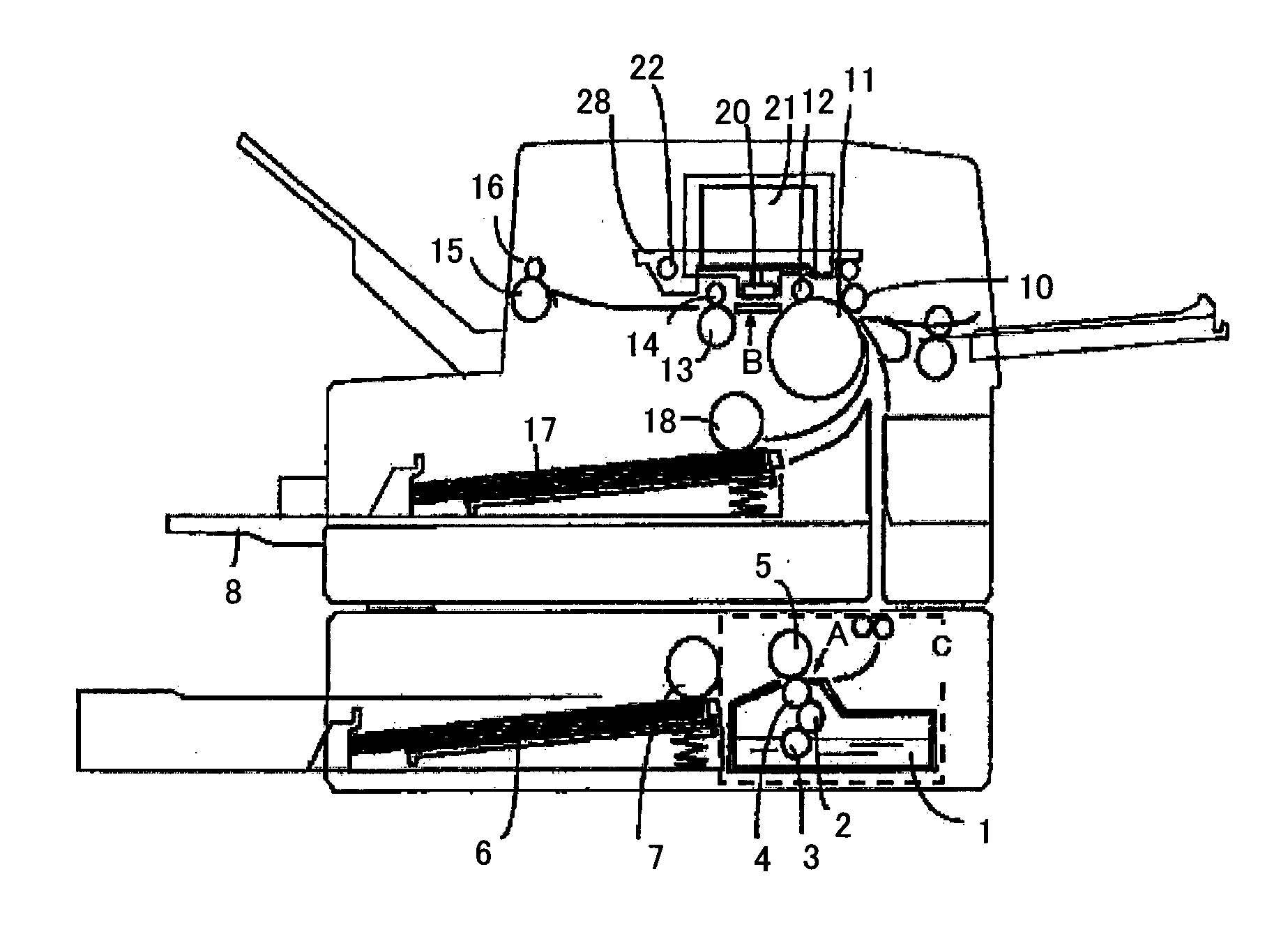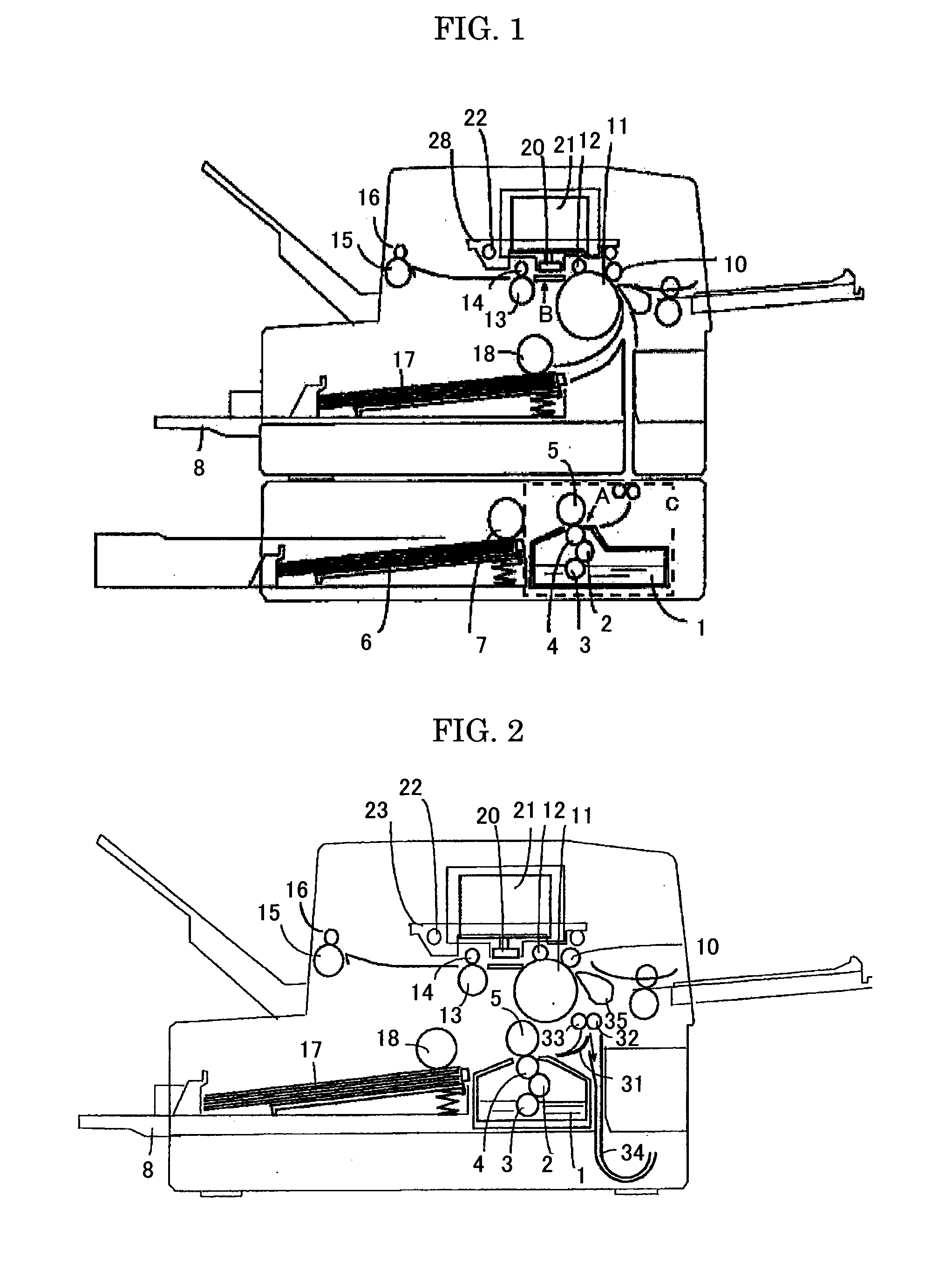Inkjet treatment liquid and image forming method using treatment liquid
- Summary
- Abstract
- Description
- Claims
- Application Information
AI Technical Summary
Benefits of technology
Problems solved by technology
Method used
Image
Examples
first embodiment
(1) in a first embodiment, the water-dispersible colorant contains a polymer emulsion in which a water-insoluble or sparsely soluble coloring material is contained in polymer fine particles (i.e., a water dispersion of polymer fine particles containing a color material).
second embodiment
(2) in a second embodiment, the water-dispersible colorant contains a pigment having at least one hydrophilic group on its surface and exhibiting water-dispersibility in the absence of a dispersant (hereinafter, also referred to as “self-dispersible pigment”.
[0097]In the present invention, in the case of the second embodiment, the colorant preferably contains a water-dispersible resin described below.
[0098]As the water-dispersible colorant of the first embodiment, a polymer emulsion obtained by containing a pigment in polymer fine particles is preferably used, in addition to the above-mentioned pigments. The polymer emulsion obtained by containing a pigment in polymer fine particles is an emulsion in which a pigment is encapsulated in polymer fine particles or a pigment is adsorbed on the surface of each of polymer fine particles. In this case, all pigment particles are not necessarily encapsulated in or adsorbed on the surface of the pigment. That is, the pigment may be dispersed i...
preparation example 1
[0185]A 500 mL three-necked flask equipped with a stirrer, a thermocouple, and a nitrogen-inlet tube was charged with 2 moles of N,N-dimethylacryl amide and 3 moles of methanol. Subsequently, nitrogen gas was introduced into the flask, and 20 mL of a methanol aqueous solution containing 0.02 moles of sodium methoxide was added at room temperature with stirring. The temperature of the solution gradually increased, and 30 minutes after the start of the reaction, the reaction temperature reached 38° C. The reaction temperature was controlled to the range of 30° C. to 40° C. using a water bath. Five hours later, the reaction solution stopped generating heat, and then the reaction solution was neutralized with acetic acid. After removing non-reacted materials from the reaction solution, the reaction solution was distilled at 133 Pa, and 58° C., to thereby obtain β-methoxy-N,N-dimethylpropione amide as a distillate.
PUM
| Property | Measurement | Unit |
|---|---|---|
| Solubility (mass) | aaaaa | aaaaa |
Abstract
Description
Claims
Application Information
 Login to View More
Login to View More - R&D
- Intellectual Property
- Life Sciences
- Materials
- Tech Scout
- Unparalleled Data Quality
- Higher Quality Content
- 60% Fewer Hallucinations
Browse by: Latest US Patents, China's latest patents, Technical Efficacy Thesaurus, Application Domain, Technology Topic, Popular Technical Reports.
© 2025 PatSnap. All rights reserved.Legal|Privacy policy|Modern Slavery Act Transparency Statement|Sitemap|About US| Contact US: help@patsnap.com



